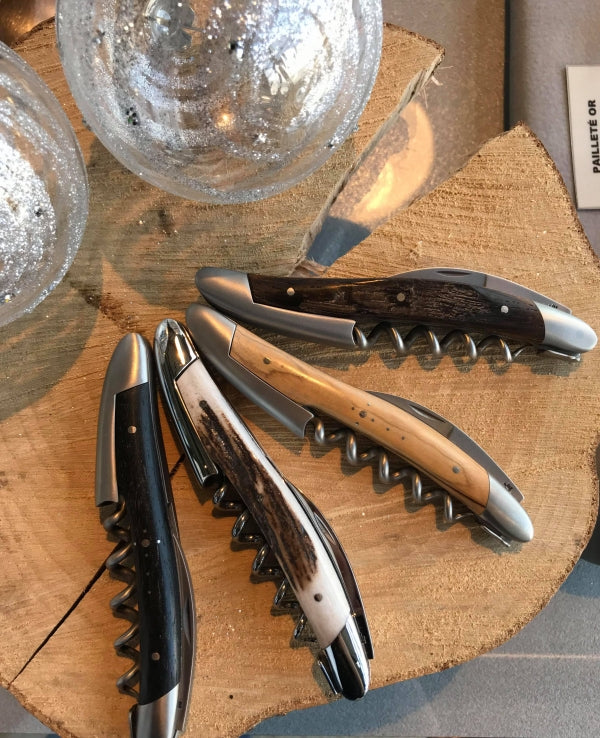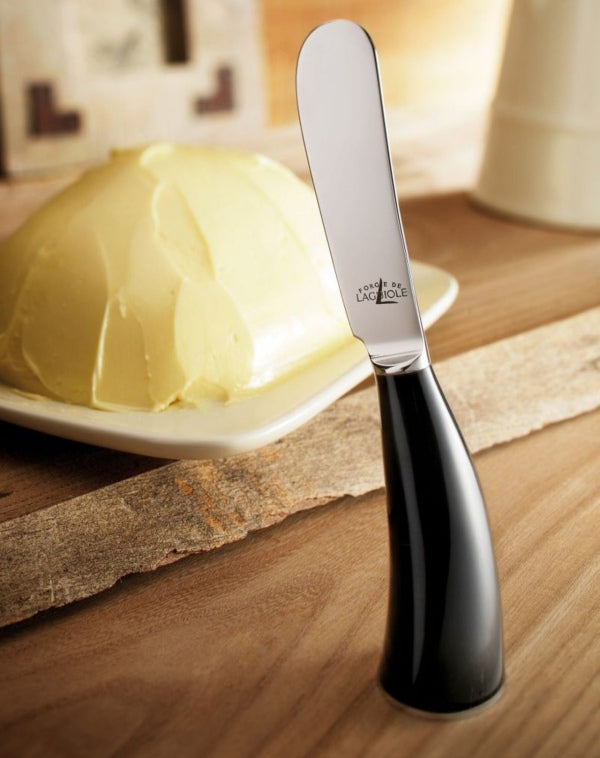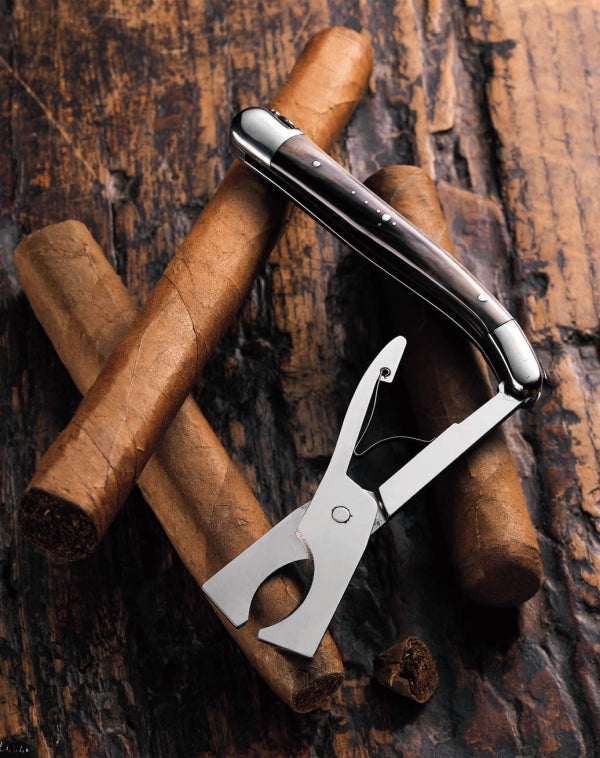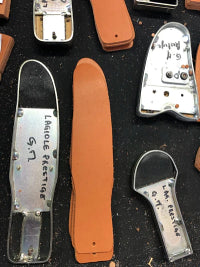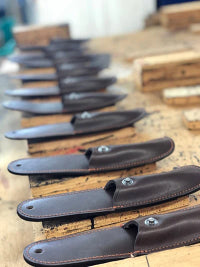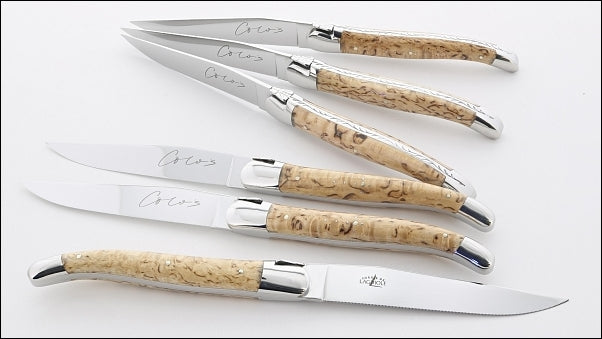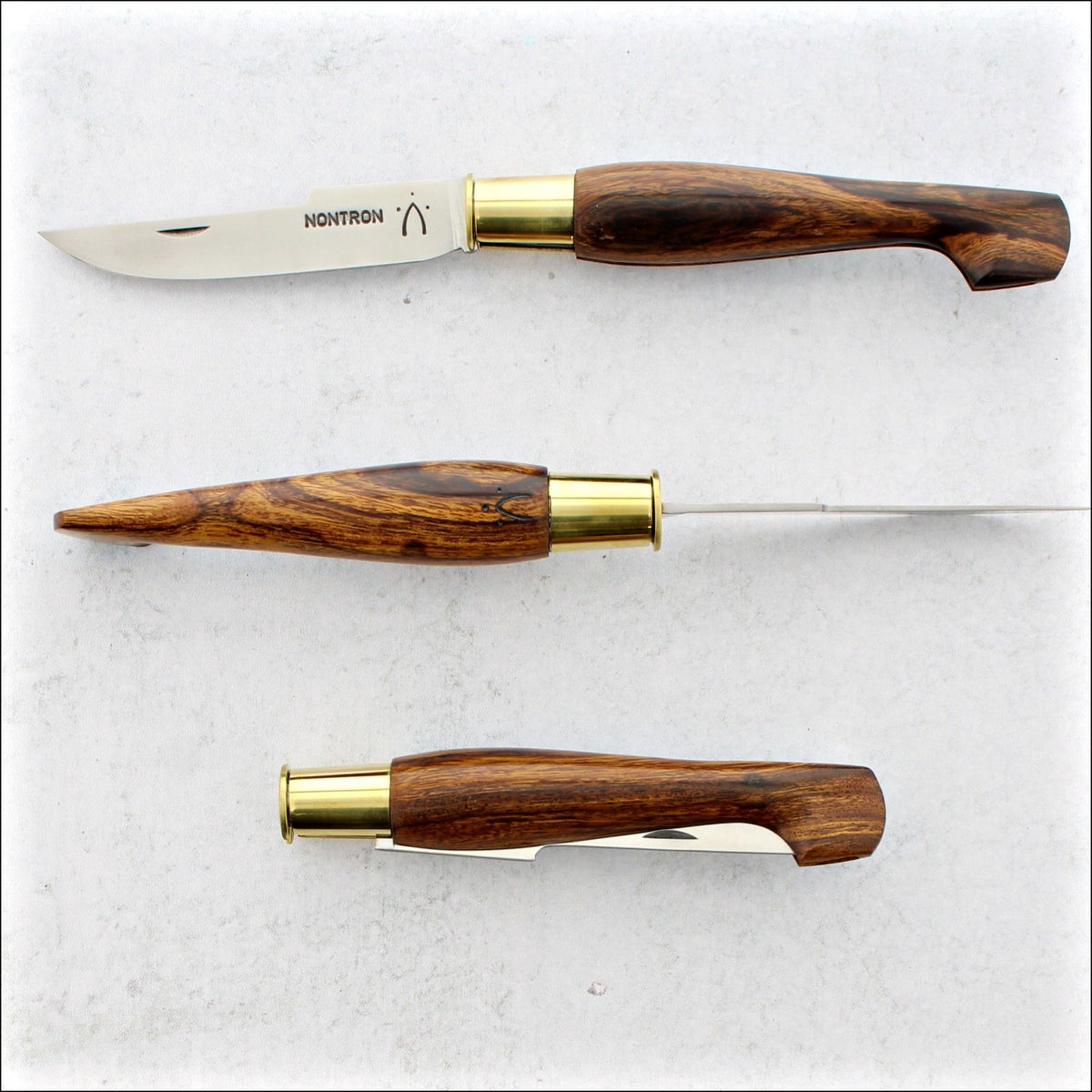The Catalan's blade is similar to the one of the "Navaja knife," which is the oldest folding knife pattern still in production today. The "Navaja" first originated in southern Spain and was gradually exported and eventually made it to France and Corsica. Today, each Nontron knife is an original work of art made by one of only ten artisan knife makers.
The Nontron knife shares the name of the French village of its birth, located in the Dordogne department. This knife's history is filled with so many legends that it is difficult to date its exact origin; however, most experts agree that the Nontron knife is the oldest French folding knife dating back to the 13th century. Today, the cutlery that bears its name since 1928 produces handmade knives using ancestral methods. The procedures used to conceive today's Nontron pocket knives have been nearly the same since the fifteenth century.
Handle type: Medieval Clog handle. Highly ergonomic, this ancestral design prevents hand slippage and provides a safe resting area for the blade's tip.
Safety ring: This knife features a simple brass locking ring to keep the blade locked while open.
Safety evolution: Early Nontron knives did not have a locking mechanism; the blade was held open by the wood's pressure.

